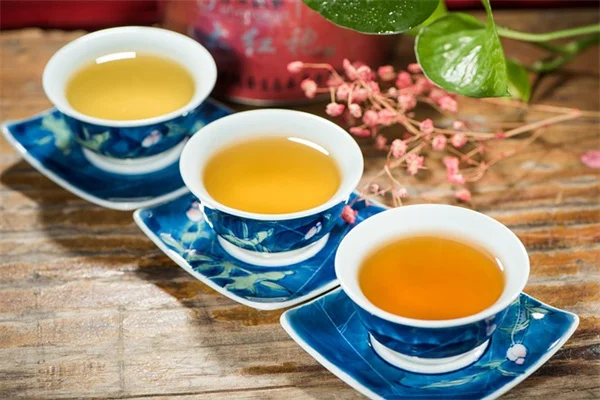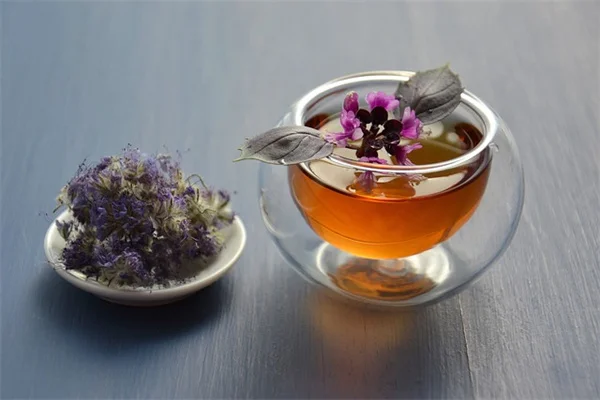Advertisement
Can sweat odors help with social anxiety? The answer is: Yes, according to groundbreaking new research! A pilot study presented at the European Congress of Psychiatry shows that exposure to certain human sweat odors - what scientists call chemosignals - can boost the effectiveness of mindfulness therapy by nearly double compared to therapy alone. Here's why this matters: if you're among the millions struggling with social anxiety, this could eventually offer a natural, medication-free alternative to traditional treatments. The study found that when combined with mindfulness therapy, these sweat odors helped reduce anxiety symptoms by 39% versus just 17% with therapy alone. While more research is needed, this discovery opens exciting possibilities for non-invasive anxiety treatments you might one day practice at home.
E.g. :HRT Timing Matters: How Early Menopause Affects Alzheimer's Risk
- 1、Could Sweat Actually Help Ease Social Anxiety?
- 2、The Real-World Potential of Sweat Therapy
- 3、What the Experts Are Saying (And What They're Not)
- 4、Where Do We Go From Here?
- 5、Exploring the Hidden Connections Between Our Senses and Emotions
- 6、Practical Applications Beyond Anxiety Treatment
- 7、Debunking Common Myths About Body Odor
- 8、The Future of Personalized Scent Therapy
- 9、FAQs
Could Sweat Actually Help Ease Social Anxiety?
The Surprising Science Behind Body Odor and Mental Health
You know that awkward moment when you're sweating bullets before a big presentation? Well, what if I told you that very sweat might hold the key to calming social anxiety? A groundbreaking pilot study presented at the European Congress of Psychiatry suggests that exposure to certain sweat odors could boost the effectiveness of mindfulness therapy for social anxiety sufferers.
Here's the fascinating part: When researchers exposed participants to these "chemosignals" (fancy science talk for sweat smells), they saw nearly double the improvement in anxiety symptoms compared to traditional therapy alone. Imagine - something as simple as body odor potentially offering relief without medication side effects!
How Exactly Does This Work?
Let's break it down. The study involved 48 women with social anxiety divided into three groups. Check out how the numbers stacked up:
| Treatment Group | Anxiety Reduction After Therapy |
|---|---|
| Mindfulness + Sweat Odors | 39% improvement |
| Mindfulness Alone | 17% improvement |
Now you might be wondering - why would smelling sweat help anxiety? Great question! Experts believe we're more emotionally connected through smells than we realize. Those nervous sweats before a date? They're actually sending chemical signals that might help others regulate their emotions too.
The Real-World Potential of Sweat Therapy
 Photos provided by pixabay
Photos provided by pixabay
Beyond the Lab: What This Could Mean for You
Picture this: Instead of popping pills for your social anxiety, you might one day have the option of odor-enhanced therapy sessions. Dr. Elisa Vigna, the study's lead researcher, emphasizes this could be a game-changing non-invasive treatment that people could even practice at home.
But hold on - before you start sniffing gym socks as a DIY solution, let's be clear. The researchers used carefully collected sweat samples from people watching emotional movie clips. We're talking about specific chemical compounds here, not just any old B.O.
The Medication Alternative We've Been Waiting For?
Here's something that'll make you think: Could this be the natural anxiety solution we've overlooked? Many people avoid psychiatric medications due to side effects or stigma. As Dr. Sarah Martin points out, sweat-based therapy would likely have minimal side effects while still delivering real results.
I know what you're thinking - "But isn't body odor itself stigmatized?" Absolutely! That's why the researchers are focusing on isolating the beneficial compounds rather than having people literally sniff each other. Think of it like how we extract helpful ingredients from plants for medicine.
What the Experts Are Saying (And What They're Not)
The Exciting Possibilities
Psychiatrists find these preliminary results fascinating. Dr. Myo Thwin Myint calls the study design "intriguing," noting it could revolutionize how we approach social anxiety treatment in both virtual and in-person settings. The idea that our natural chemical signals might help regulate each other's emotions opens up a whole new field of research.
But let's keep it real - this isn't some miracle cure. The therapy still required mindfulness sessions. The sweat odors just gave the treatment an extra boost. Think of it like adding turbo to an already good engine.
 Photos provided by pixabay
Photos provided by pixabay
Beyond the Lab: What This Could Mean for You
Before you get too excited, remember this was a small pilot study with only 48 participants. The control group just got clean air, which means participants probably knew which treatment they were getting. As Dr. Martin notes, this makes it hard to rule out placebo effects.
And here's the kicker - we don't yet know exactly which chemical compounds in sweat are doing the heavy lifting. Is it stress hormones? Pheromones? Bacterial byproducts? The researchers are still working to identify the active ingredients in this potential anxiety remedy.
Where Do We Go From Here?
The Future of Anxiety Treatment
Imagine walking into a therapist's office where part of your treatment involves exposure to carefully calibrated human chemosignals. Sounds like science fiction, but this study suggests it might become science fact. The researchers are already planning larger, more rigorous studies to confirm these promising early results.
What's particularly exciting is how this approach combines ancient wisdom (mindfulness) with cutting-edge science (chemosignal analysis). It's like getting the best of both worlds in mental health treatment.
What You Can Do Right Now
While we wait for more research, here's my two cents: If you struggle with social anxiety, don't overlook mindfulness therapy. The study shows it helps even without sweat odors. And who knows? Maybe future versions will include odor-enhanced sessions that make the treatment even more effective.
Just remember - no running to the gym to huff armpits! Leave the science to the researchers while they work on developing safe, effective ways to harness these fascinating findings.
Exploring the Hidden Connections Between Our Senses and Emotions
 Photos provided by pixabay
Photos provided by pixabay
Beyond the Lab: What This Could Mean for You
Did you know your nose might be picking up more than just pleasant or unpleasant odors? Our sense of smell plays a much bigger role in social interactions than most people realize. While we often focus on visual and verbal cues, research suggests we're constantly exchanging chemical signals that influence our emotions and behaviors.
Here's something wild to consider: Newborn babies can recognize their mother's scent within days of birth. If smell plays such a crucial role in our earliest relationships, doesn't it make sense that it continues affecting us throughout life? This might explain why certain smells can instantly transport us back to specific memories or emotional states.
The Science Behind Emotional Contagion
Let's talk about how emotions spread between people - and no, we're not just talking about contagious laughter or yawns. Studies show we can actually "catch" emotions through chemical signals in sweat. Check out these fascinating comparisons:
| Emotion Type | Effect on Others |
|---|---|
| Fear Sweat | Triggers heightened alertness |
| Happy Sweat | Promotes positive mood |
| Stress Sweat | May increase empathy |
Now you might be thinking - if we're constantly sharing emotions through smells, why don't we notice it? Excellent point! These effects happen below our conscious awareness. Just like you don't actively think about breathing, your body processes these chemical signals automatically, influencing your mood and reactions.
Practical Applications Beyond Anxiety Treatment
Revolutionizing Workplace Environments
Imagine walking into an office where the air system subtly delivers calming chemosignals. We could potentially create spaces that naturally reduce stress and improve focus. Some forward-thinking companies are already experimenting with scent diffusion systems - what if the next step involves human chemical signals?
Picture this scenario: Before important meetings, team members participate in a brief mindfulness session while being exposed to confidence-boosting chemosignals. The result? More productive discussions with less social anxiety. We're talking about creating work environments that work with our biology rather than against it.
Enhancing Social Skills Training
For individuals struggling with social interactions, this research opens exciting possibilities. Traditional social skills training focuses on verbal and nonverbal behaviors - but what if we're missing a crucial piece? Incorporating carefully designed scent elements could potentially accelerate learning and make new skills "stick" better.
Think about how actors use emotional memory to deliver powerful performances. Now imagine if we could harness similar techniques through scent to help people feel more comfortable in social situations. The applications for autism spectrum therapies, public speaking training, and even dating coaching could be revolutionary.
Debunking Common Myths About Body Odor
Not All Sweat is Created Equal
Here's something that might surprise you: Your body produces different types of sweat depending on the situation. That nervous sweat before a job interview? Completely different chemical composition from the sweat you produce during a workout. And get this - emotional sweat comes from different glands than temperature-regulating sweat!
We've been conditioned to think of all body odor as something to eliminate, but this research suggests we might be throwing the baby out with the bathwater. Some of those "stinky" compounds could actually be beneficial social signals we've evolved to respond to over thousands of years.
The Cultural Component We Can't Ignore
Why does Western culture have such a negative view of natural body odors while other cultures embrace them? Could our obsession with cleanliness be cutting us off from important social connections? Interesting question! Anthropologists note that many traditional societies use smell as an important part of social bonding - from shared sleeping arrangements to limited bathing practices.
While I'm not suggesting we abandon deodorant (please don't!), this research makes me wonder if we've gone too far in eliminating natural human scents from our lives. Maybe there's a happy medium where we maintain hygiene while still allowing beneficial chemical signals to work their magic.
The Future of Personalized Scent Therapy
Tailoring Treatments to Individual Needs
What if future anxiety treatments could be customized based on your unique chemical profile? Researchers are exploring how different people respond to various chemosignals, suggesting we might one day have "scent prescriptions" as personalized as medication dosages.
Imagine walking into a clinic where they analyze your stress responses and create a custom blend of calming chemosignals just for you. We're not there yet, but the potential is thrilling. This could be especially helpful for people who don't respond well to traditional medications or therapies.
Ethical Considerations We Need to Address
As exciting as these possibilities are, we can't ignore the potential pitfalls. Who controls these powerful chemical compounds? Could they be misused in advertising or social engineering? The development of this technology needs careful oversight to prevent exploitation.
I keep thinking about how social media algorithms manipulate our emotions - now imagine if they could literally pump mood-altering scents into our environments. The ethical implications are huge, and we need to start these conversations now, before the technology gets ahead of our ability to regulate it responsibly.
E.g. :Social Anxiety Disorder: What You Need to Know - National Institute ...
FAQs
Q: How does sweat help with social anxiety?
A: Here's the fascinating science behind it: When we experience emotions, our bodies release specific chemical signals through sweat. Researchers believe these "chemosignals" may help regulate emotions in others who smell them. In the study, they collected sweat from people watching emotional movie clips, then exposed anxiety sufferers to these odors during mindfulness therapy. The results? Nearly double the improvement compared to therapy alone! It's not just any sweat though - scientists are working to identify exactly which compounds create this calming effect. Think of it like nature's own anxiety remedy, but we're still figuring out the recipe.
Q: Is this treatment available now?
A: Not yet, but the potential is exciting! Right now, this was just a small pilot study with 48 participants. While the results are promising, researchers need to conduct larger studies to confirm the findings and develop practical applications. The good news? Lead researcher Elisa Vigna envisions this becoming an accessible treatment people could use at home to enhance therapy. But don't go sniffing gym socks just yet - we're talking about carefully collected and processed chemosignals, not random body odor. The team is working to make this a safe, standardized treatment option in the future.
Q: How does this compare to anxiety medications?
A: Here's why this could be a game-changer: Unlike many psychiatric medications that can cause side effects like drowsiness or weight gain, sweat-based therapy would likely have minimal side effects. As Dr. Sarah Martin notes, this makes it particularly appealing for people who prefer natural treatments or want to avoid medication stigma. However, it's important to understand this isn't a replacement for all medications - the study combined sweat odors with mindfulness therapy. Think of it as a potential enhancement to existing treatments rather than a complete alternative - at least for now.
Q: Could I try this at home?
A: While the concept sounds simple, we strongly advise against DIY experiments. The study used carefully controlled sweat samples collected under specific emotional conditions. Random body odor won't have the same effect and could even be counterproductive. What you can do right now is explore mindfulness therapy, which the study confirmed helps with social anxiety even without sweat odors. As research progresses, we may see approved products or therapies incorporating these findings. Until then, leave the science to the professionals!
Q: What's the next step in this research?
A: The research team has several important questions to answer next. They need to: 1) Identify exactly which chemical compounds in sweat create the anxiety-reducing effects, 2) Conduct larger studies with more diverse participants, and 3) Develop reliable methods to collect and administer these chemosignals. They're also working to address study limitations - like using better control conditions (maybe neutral odors instead of just clean air). While it might take a few years, this could lead to revolutionary new anxiety treatments that combine ancient mindfulness practices with cutting-edge scent science.







